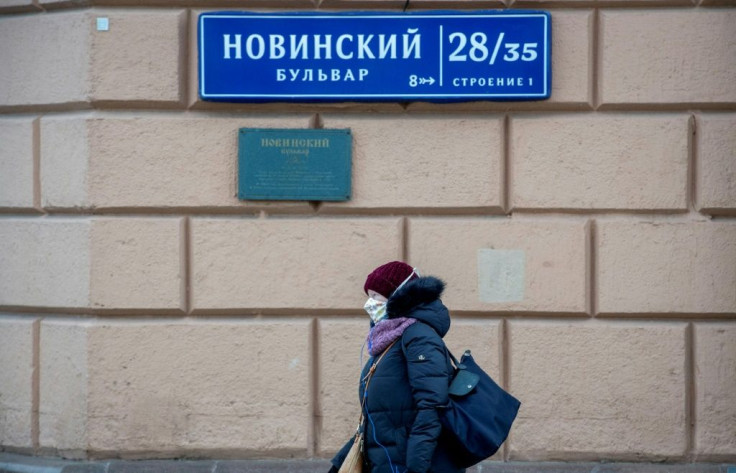Mask Shortages See Russians Turn To Online Black Market

With pharmacy and supermarket shelves empty of protective masks, Russians worried about the coronavirus are turning to black markets online to hunt for supplies.
As the United States and western Europe move cautiously to ease restrictions imposed over the pandemic, Russia has seen a surge in infections that sent its confirmed coronavirus cases above 100,000 this week.
The number of deaths has also topped 1,000 and officials have extended lockdown measures to mid-May.
Authorities are encouraging the wearing of masks to help prevent a further spread of the outbreak, but ordinary Russians, companies looking to protect their employees and even medical workers are struggling to find them.
"There is a glaring lack of protective equipment in every region. Nearly all the hospitals have problems and in most the situation is close to being critical," said Andrei Konoval, co-president of the doctors' trade union "Action".
Underpaid medical workers are being forced to spend their own meagre funds on supplies, he said, "while many are making do by washing masks or using them for extended periods."
Natalya Eismont, a doctor in the Sverdlovsk region in the Ural Mountains, told AFP there was a "catastrophic lack" of masks among medics.
"I gave material to all my doctor friends so they can sew their own masks," she said.
Boris Churadze, the chief doctor at a private Moscow clinic treating coronavirus patients, told AFP during a visit to his facility last week that medical staff were well aware of a black market for equipment.
"A lot of people are making money from this," he said.
Officials including President Vladimir Putin have admitted Russia is lacking masks and other equipment, but they say every country is facing shortages and have announced major efforts to produce more.
In the meantime, the only option for many Russians are online black markets offering masks of dubious origin.
Offers have multiplied in neighbourhood messaging groups that many Russians use to share news and information about their communities.

"I have three-ply masks at 55 rubles ($0.75) a piece!" read one message seen in a WhatsApp group for residents of a Moscow suburb, along with a photograph of masks in a warehouse full of boxes.
Before the coronavirus pandemic, such masks would have cost 10 times less.
On Telegram, another messaging tool popular in Russia, vast quantities of protective equipment are for sale in various groups -- with some offering thousands of surgical or FFP masks, or disinfectant by the tens of litres.
Online retail sites such as Avito and Yula also have hundreds of offers of protective equipment available for home delivery.
Authorities initially tried to crack down, with the government at the beginning of April banning the sale of masks and surgical gloves outside of pharmacies. It reversed the decision a week later.
One pharmacist told AFP that many retailers were actually holding back from buying and selling masks after Putin threatened to punish anyone who increased prices during the crisis.
"When the coronavirus epidemic started, suppliers inflated their prices and we stopped buying them because we were scared of losing our licence. We obviously can't sell them for less than we pay," she said, speaking on condition of anonymity.
Putin said this week that Russia had vastly increased its production of masks and other protective equipment.
"We have concentrated and mobilised all our industrial resources," he told regional officials, adding that mask production capacity had grown tenfold to 8.5 million per day.
"Measures are being taken and the authorities are trying to solve the problem," said Konoval of the doctors' union, though he added that some of the initiatives were coming too late.
"It seems to me that we have lost this battle."
© Copyright AFP {{Year}}. All rights reserved.





















